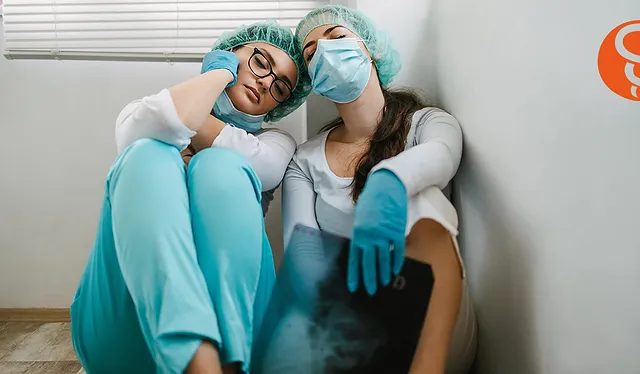Waking up at 5:30 in the morning, getting ready to go to the hospital and assess my patients on the ward. While I take two buses and a mototaxi to my destination, I think about the medical records I need to complete before the medical rounds, which usually start at 8 a.m. Hopefully, my “little patients” haven’t gotten worse. I arrive quickly and see some of my colleagues buying breakfast at the entrance, but like most of them, I prefer to wait until after the medical rounds; I can’t afford to waste time. I’m glad to see my colleagues arriving at the ward; it makes me feel that I’m not alone in this.
I like this Pediatrics rotation; our residents are mostly as sweet as kindergarten teachers. Who’s doing rounds today? Dr. X? Well, now, besides memorizing the clinical progress of my patients, I need to review normal and abnormal lab values one more time so I don’t look bad in front of my “little patients”.
After the rounds, we take a break in the residents’ lounge and have breakfast, while I think about the post-round tasks: wound care, arranging a CT scan for one patient, and making sure another patient is taken to X-ray. Suddenly, the nurse knocks on the door and informs me that, once again, there’s no porter available, and I’ll have to take my patient to Radiology with the help of her mother.

This is how a typical day during my internship began, in the Pediatrics department, which was said to be the calmest of all. And now that I compare, yes, it was the one that gave me more good memories. Then came the rotations in Internal Medicine, Surgery, and Gynecology. My group of interns consisted of nearly 20 colleagues, and only three of us were from the same university (Universidad Nacional Mayor de San Marcos).
Most of my colleagues, now friends, came from private universities, some even from other provinces, and had to move to Lima for the internship. Our daily shifts lasted approximately 9 to 10 hours; we worked Monday to Sunday and usually did 6 night shifts per month (in emergency services). That meant that on days with night shifts, we had to work over 30 consecutive hours.
Imagine working 9 to 10 hours a day, 7 days a week, plus 1 or 2 night shifts (from 7 p.m. to 7 a.m. the next day), adding up to a minimum of 75 hours a week. Now that I think about it, I can only smile and remember that it’s no exaggeration when we interns referred to the internship as “the hellternship.”
I still remember one day when I was on post-call after my first 33-hour shift. The doctor on rounds decided that we would have class, not at 2 p.m., but at 4 p.m. (our supposed end time). Resigned, tired, but still smiling, I commented to the nurse on duty: “It seems my 33-hour shift is going to be extended.” She looked at me a bit incredulously, but then, with a smile, gave me advice that I value to this day: “Doctorita, don’t kill yourself working because no one here is going to build you a monument.” Her words hit me like a bucket of cold water. And it’s true; this level of exhaustion goes beyond what’s humanly acceptable—working nearly 80 hours a week is too much, for anyone.
The official regulations in my country established several years ago that interns should work a maximum of 150 hours per month, with a stipend of 400 soles per month (equivalent to $100). However, in reality, an intern works 10 hours a day, every day of the year, and it’s not guaranteed they will receive a salary, as this depends on the hospital’s funding. Moreover, in my country, studies are financed either by your parents or by yourself, which is why admission to a public university is highly competitive, as education is free (only about 2% of medical applicants secure a spot).

Well, all of this reflection on my internship came to mind this morning after reading some articles about medical residency here in the Netherlands, where there’s a similar payment of 100 euros per month, and the regulations mandate a maximum of 46 hours of work per week for interns. However, even in this first-world country, there is overtime, with an average of 56 hours per week.
As I read at the beginning of one of the articles: “Working overtime is – unfortunately – not an unknown phenomenon in the healthcare sector.” And so it is; it happens everywhere. It’s an unfortunate reality that should change and improve because it’s inconsistent for those of us who promote physical and mental health to not practice it ourselves.


